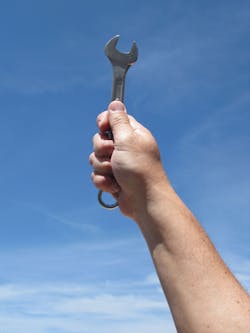Global public health organization NSF Intl. and professional organization American Society of Plumbing Engineers (ASPE) have signed a memorandum of understanding (MOU) to advance and promote public health and sustainability initiatives for the plumbing industry. This agreement focuses on sound plumbing and engineering practices and will utilize the expertise of both organizations to strengthen current and future projects.
Under the MOU, NSF Intl. and ASPE will work cooperatively to leverage their resources to support the plumbing industry and regulators by jointly promoting education programs, conferences, publications, standards and new products and services. The agreement will continue the advancement of safe drinking water through research and development and, as opportunities arise, the introduction of new standards and codes.
“NSF Intl. is committed to continued advancement in the science and technology of safe drinking water through code and standard research and development as well as sound plumbing practices,” said Dave Purkiss, general manager of NSF Intl.’s Plumbing Division. “With the expertise and knowledge of the American Society of Plumbing Engineers and NSF Intl., we will continue to advance education, sustainability initiatives and technology within the plumbing industry.”
In 2013, NSF Intl. co-sponsored the first American National Standard for the design of rainwater harvesting systems, ARCSA/ASPE/ANSI 63: Rainwater Catchment Systems, which ASPE developed with the American Rainwater Catchment Systems Assn.
NSF Intl. led the development of the American National Standards for all chemicals used to treat drinking water and materials/products coming into contact with drinking water. Certification to these standards ensures products do not leach harmful levels of contaminants into water. In 1990, the U.S. Environmental Protection Agency (EPA) replaced its own drinking water product advisory program with these NSF standards. Today, most plumbing codes require certification to NSF standards for pipes and plumbing components in commercial and residential buildings.
The plumbing industry is familiar with NSF/ANSI 61: Drinking Water System Components as the nationally-recognized health effects standard for all devices, components and materials that come in contact with drinking water. Recognized by regulatory agencies at the local, state, federal and international level, the NSF certification mark means that the product complies with all standard requirements.
“At the American Society of Plumbing Engineers, we are committed to serving our membership and industry in continuing to build quality relationships with our industry partners,” said William “Billy” Smith, FASPE, the American Society of Plumbing Engineers’ executive director and CEO. “This agreement with NSF Intl. represents our dedication to promoting education that imparts the importance of innovation and sustainability. Through our respective expertise, APSE and NSF Intl. will be able to expand additional opportunities to advance our mutual goals relative to water conservation and the delivery of safe drinking water internationally.”
ASPE is the international organization for professionals skilled in the design, specification and inspection of plumbing systems. The society is dedicated to the advancement of the science of plumbing engineering, the professional growth and advancement of its members, and the health, welfare and safety of the public.
Source: NSF Intl.


